Obamacare repeal failure was a setback for abortion opponents, but they see momentum on their side
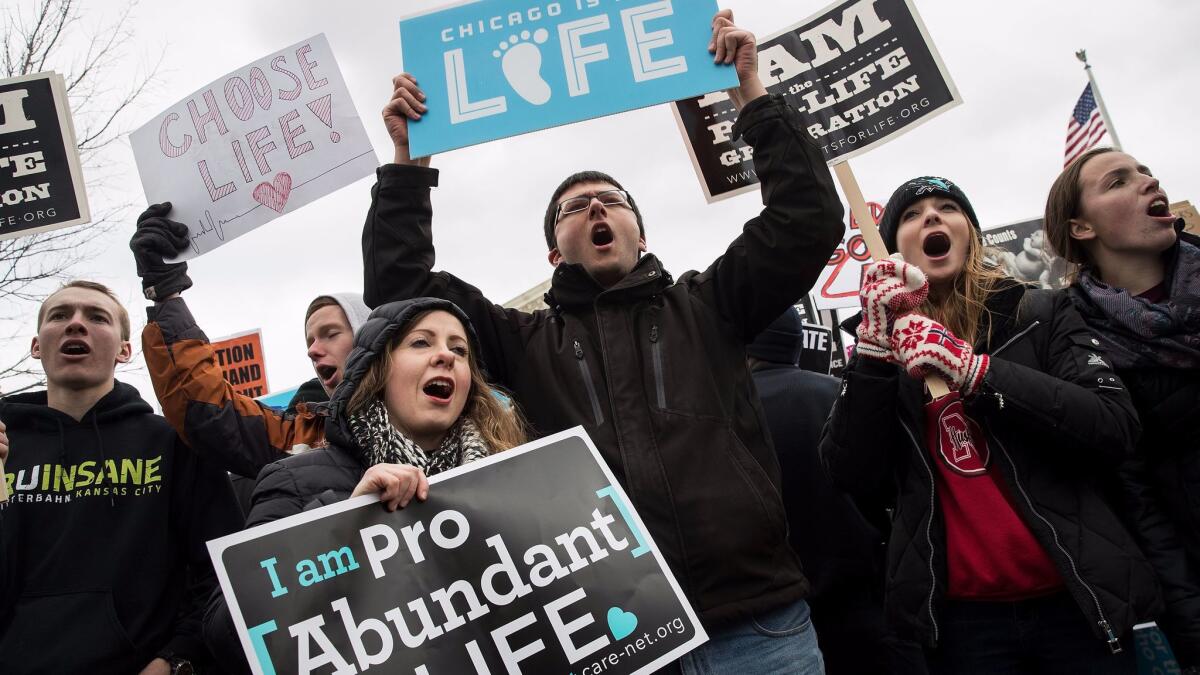
Opponents of abortion have had reason for optimism this year. With Republicans in control of the U.S. Capitol and a president who embraces their cause, access to the procedure has appeared in greater jeopardy than it has in years.
Abortion foes were dealt a setback last week when
Mallory Quigley, spokeswoman for the antiabortion Susan B. Anthony List, said the votes would be a major disappointment to the âpro-life grass rootsâ who knocked on doors, made phone calls and rallied to get like-minded lawmakers elected. But she added, âI think what is important to note is that the pro-life elements were not the cause of failure for the bill.â
âThis was an area of unity for Republicans,â she said. âSo I do think that there are going to be more wins in the future.â
Abortion foes arenât waiting on the federal government to act, however. Conservative state lawmakers have passed a rash of restrictive laws in battlegrounds such as Arkansas, Iowa, Missouri and Texas.
Proponents of reproductive rights are fighting back and have persuaded federal courts to block some measures that could place an âundue burdenâ on a womanâs ability to obtain a legal abortion.
Hereâs a recap of whatâs been happening in the abortion war at the White House, in Congress and around the country:
At the White House
President Trump once described himself as âvery pro-choice,â despite hating abortion. But his actions since taking office have revived hope among antiabortion activists for changes that seemed impossible under the Obama administration.
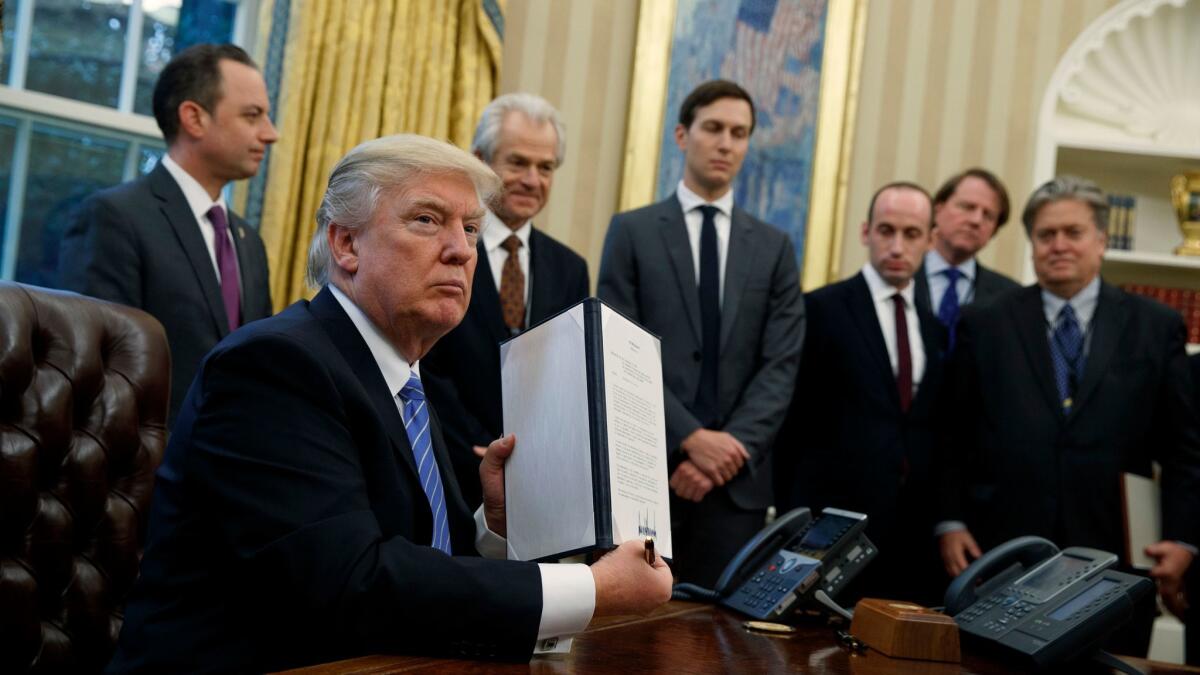
Foreign aid ban tied to abortion
One of Trumpâs first official acts was to reinstate and expand a ban on funding for international organizations that provide abortions or related counseling. Trumpâs version of the policy, first introduced under the Reagan administration, applies not only to the roughly $600 million that the U.S. provides annually for family planning services but to almost all global health assistance â about $8.8 billion worth.
Conservative champions appointed to key posts
Abortion foes have seen champions of their cause ascend to top positions in the Trump administration, including Vice President Mike Pence, Health and Human Services Secretary Tom Price and presidential advisor Kellyanne Conway.
Trump has also promised to appoint U.S. Supreme Court justices who would overturn the 1973 Roe vs. Wade decision that legalized abortion across the country.
The selection of Judge Neil M. Gorsuch did not give conservative justices the majority they would need to do that, but any future vacancies could change the composition of the court. Trumpâs federal court nominations have also included people who are widely viewed as receptive to further restrictions on abortion.
In Congress
Curtailing funding for Planned Parenthood has been a priority for conservative lawmakers because the group is the largest single provider of abortions in the U.S. and a powerful advocate for reproductive rights.
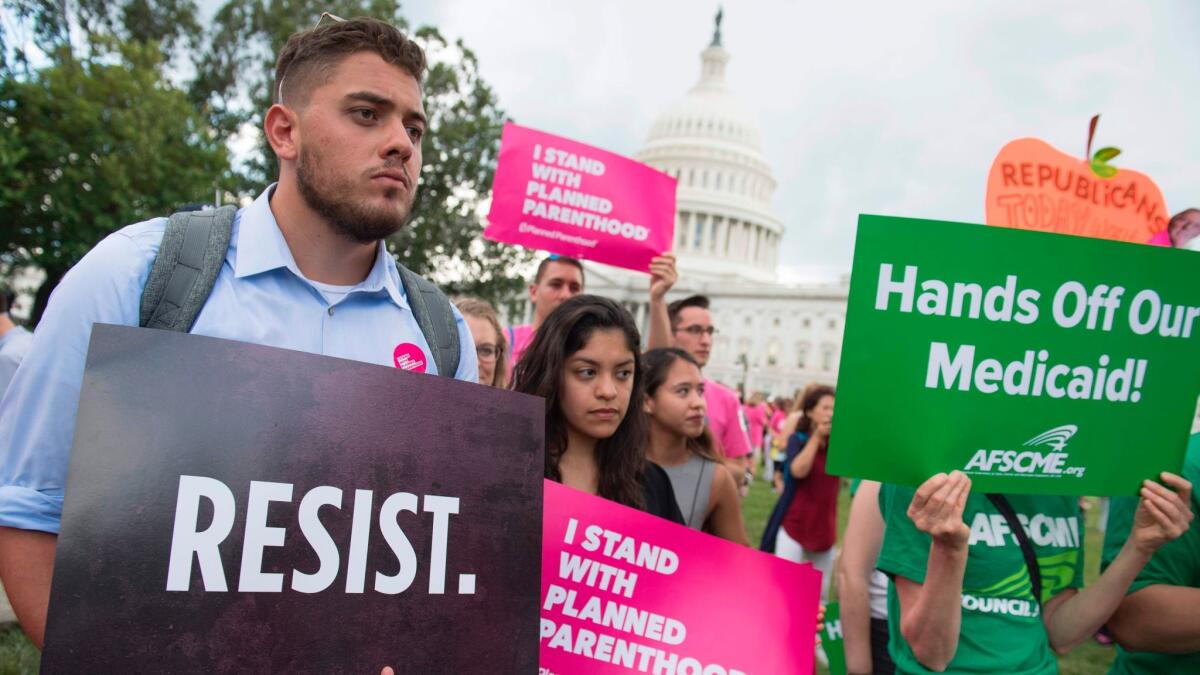
Steps to cut off federal funding for Planned Parenthood
In April, Trump signed a law reversing a regulation finalized in the last days of the Obama administration that prevented states from withholding federal Title X grants for family planning services from groups that also provide abortions.
The Republican plans to replace Obamacare would also have prevented Planned Parenthood from receiving reimbursements from
The two programs account for the majority of the funds that Planned Parenthood receives from government sources. Such cuts could force the closure of healthcare centers that provide contraception, cancer screenings and other services to uninsured patients, the group says.
At state legislatures
Conservative state lawmakers have been trying to roll back access to abortion since the Roe decision, but momentum has picked up since Republicans took control of many state legislatures in 2010. Hundreds of restrictive state measures have been passed, according to the Guttmacher Institute, which advocates for reproductive rights, including abortion.
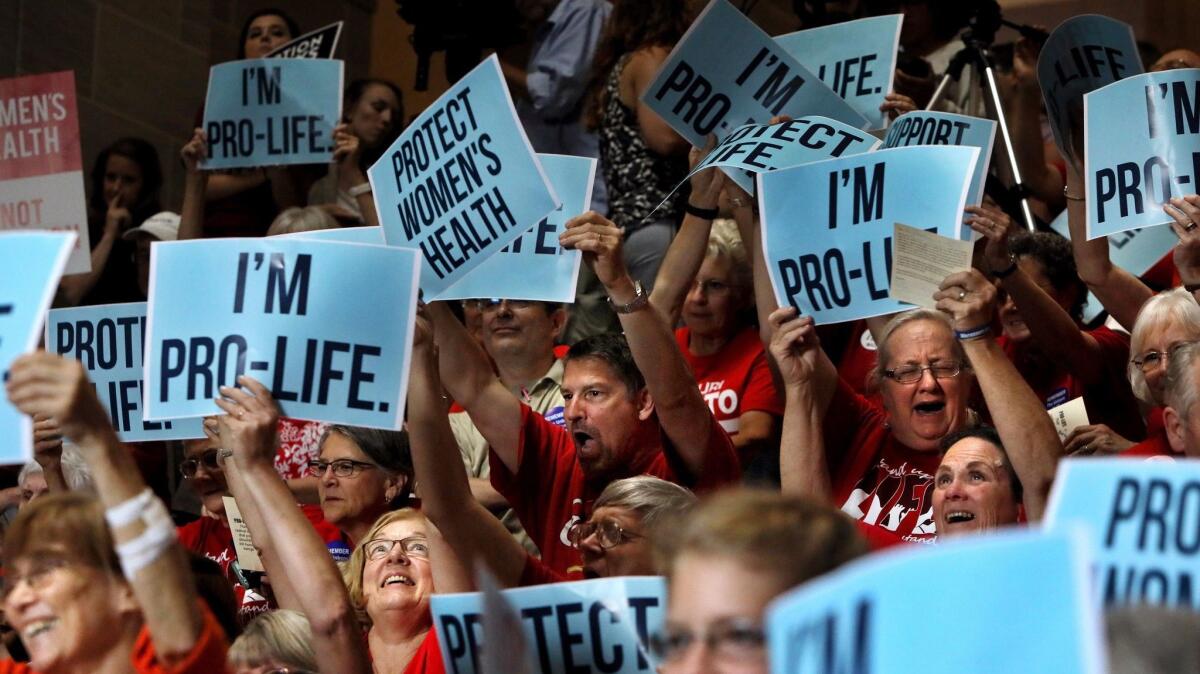
Restrictions on abortion services
Iowa and Kentucky adopted laws this year that bar most abortions after 20 weeks of pregnancy. At least 16 other states have such laws, even though federal courts have ruled that they violate the Roe decision guaranteeing women the right to terminate a pregnancy before a fetus is able to survive outside the womb.
Tennessee enacted a measure requiring that two doctors confirm that a fetus is not viable before an abortion can be provided at 20 weeks or later, except in a medical emergency.
Laws adopted in Arkansas and Texas include bans on a commonly used second-trimester procedure known as dilation and evacuation. Similar measures are already in effect in Mississippi and West Virginia. Courts have blocked Arkansas and at least four other states from enforcing them.
Other measures approved this year include ones mandating that women receive an ultrasound before undergoing an abortion (Iowa, Kentucky and Wyoming), imposing restrictions on the disposition of fetal remains (Arkansas and Texas), and introducing additional requirements for minors seeking the procedure (Indiana, Louisiana and West Virginia).
State efforts to âdefundâ Planned Parenthood
Republican lawmakers in Iowa decided to set up a wholly state-run family planning program â forgoing about $3 million in annual funding from Medicaid â so they can exclude organizations with ties to abortion providers. As a result, Planned Parenthood says it had to close four of its 12 health centers in the state. Texas and Missouri have taken similar steps.
In Arizona, GOP lawmakers included a provision in the state budget that could divert about $2 million in federal Title X grants from Planned Parenthood. The move could jeopardize five health centers, according to the group. Kentucky and South Carolina also took steps to deny funds for family planning services to organizations that provide abortions.
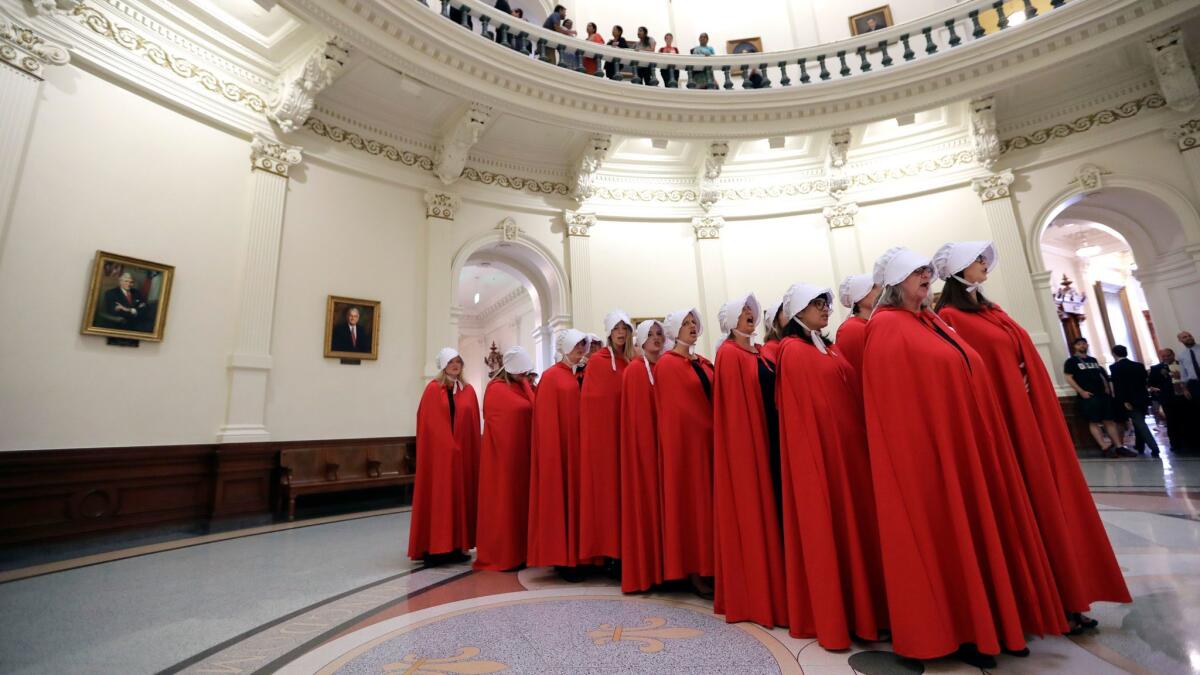
Supporters of reproductive rights fight back
Planned Parenthood and other defenders of reproductive rights have been making their case to lawmakers and staging protests around the country.
In some states, Democrats stepped in to protect or expand access to abortion. A bill headed to the desk of Gov.
The Democratic governors of Montana, Minnesota and Virginia vetoed bills that would have increased restrictions on abortions or prevented government dollars from going to groups that perform the procedure.
In other states, courts intervened. A federal judge in Arkansas blocked the state from enforcing four new abortion restrictions, including a law on the disposition of fetal remains that opponents say would effectively require a partnerâs consent before a woman could get an abortion.
A federal judge in Missouri struck down requirements that doctors who perform abortions have admitting privileges at nearby hospitals and that their clinics meet hospital-like standards for outpatient surgery.
Both states are appealing, and lawmakers in Missouri held a special session this summer to impose new regulations on abortion providers.
ALSO
Trump is pushing for a 'merit-based' immigration system that slashes the number of legal immigrants
After healthcare failures, senior GOP senators serve notice: 'It's time to move on'
As Trump mulls cutting off Obamacare aid, Senate begins bipartisan approach
Sign up for Essential California
The most important California stories and recommendations in your inbox every morning.
You may occasionally receive promotional content from the Los Angeles Times.








